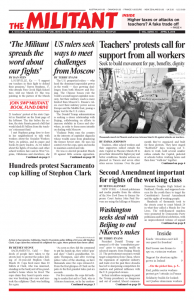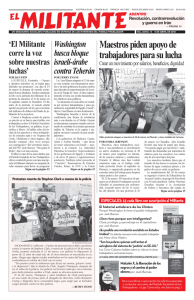WASHINGTON — “Thirty years ago, on March 16, 1988, Iraqi aircraft attacked the people of Halabja with chemical weapons. Children were lost in the chaos that followed, families died, and thousands more were injured by poison gas. Today, we mourn and honor them,” said Bayan Sami Abdul Rahman, the Kurdistan Regional Government’s representative in the U.S. Her remarks welcomed 200 participants to the “Halabja: Echoes of Genocide in Kurdistan” conference held here March 13 at the Newseum.
Activities to commemorate the 30th anniversary of then Iraqi dictator Saddam Hussein’s chemical weapon assault on Halabja — part of his regime’s Anfal campaign against the country’s Kurdish people — were held across Kurdistan in Duhok, Erbil, Halabja, Kirkuk and Sulaymaniyah.
“We have heard the cries of ‘Never again,’” Abdul Rahman said, “but genocides continue and chemical weapons are a part of the arsenal. Innocent civilians have been gassed and starved in Syria and Rohingya flee violence in Myanmar.”
In the 1988 Anfal campaign of extermination and forced removal of Kurds, 182,000 people were killed and 4,500 Kurdish villages destroyed. The genocidal drive was led by Ali Hassan al-Majid, Saddam’s cousin, who became known as “Chemical Ali.” Over 5,000 people died and thousands more were injured in Halabja, where Iraqi warplanes dropped a deadly combination of mustard gas, Sarin and VX. Tens of thousands were forcibly driven from Iraq, many taking refuge in Iran.
The campaign took place during the Iraqi regime’s eight-year war against Iran. While Washington and its imperialist allies claimed neutrality in that war, they in fact backed the Iraqi rulers’ aggression against Tehran, hoping it would deal a deathblow to the 1979 Iranian Revolution.
The U.S. rulers have a long record of using, and then abandoning, the Kurds and will do so whenever it serves their imperialist interests. Washington’s acquiescence in the Turkish rulers’ invasion of the Kurdish province of Afrin in Syria today is the latest example.
‘We are one nation’
A highlight of the conference was the testimony of Zimnako Mohammed Ahmed, who participated by Skype from Halabja. “These atrocities do not kill our hope and quest for freedom. We are Kurds. We want our statehood. We are one nation,” said Ahmed. He was an infant at the time of the Anfal. His mother put him in the yard and they were separated while she ran for a wet cloth for his brothers. He was raised by a family in Iran, and later returned to Halabja and was reunited with his mother.
“That’s when I learned what happened to us. We were five days away from Newroz, the new year. We thought it was a regular bombardment. We didn’t know that the smell of apples was actually the scent of death,” he said. “Within seconds, people were dying. I saw a photo of a man with a smile on his face, as if he was cut off in the middle of a joke.”
The Kurds — more than 30 million strong — are the largest nationality in the world without their own country, divided among Iraq, Iran, Syria and Turkey.
Despite opposition from Baghdad, Washington, Moscow and almost every capitalist regime in the region, millions of people in the Kurdistan Regional Government-ruled areas of Iraq voted overwhelmingly for independence Sept. 25. Washington turned a blind eye when the capitalist rulers in Iraq launched a brutal assault against the Kurds in Kirkuk and elsewhere after the vote. This brought an end for now to moves toward autonomy.
“The Kurdish people have come to the center stage in world politics as never before,” Socialist Workers Party National Secretary Jack Barnes wrote in New International magazine no. 7, “not primarily as victims, but as courageous and determined fighters for national rights.”
Their fight is in the interests of all working people.
“The western side of the city is where the wind blew,” Muhammad Aziz, another veteran of Halabja who now lives in Nashville, Tennessee, told the conference. “Many like me have permanent lung issues.” He carried a portable oxygen tank. “I need a lung transplant,” he said, “but I’m not on the transplant list because I cannot afford the support and care needed post-surgery. Of the tens of thousands injured, I was one of 75 brought to the U.S. for treatment.”
Efforts by the Kurdish People’s Protection Units (YPG) to defend Afrin from the Turkish rulers’ invasion was discussed by many at the meeting. Seyid Riza Dersimi, from the Kurdish-based Peoples’ Democratic Party (HDP) in Turkey, who lives in the U.S., left the conference early to join a protest demanding “Turkey Hands Off Afrin” outside the White House.

